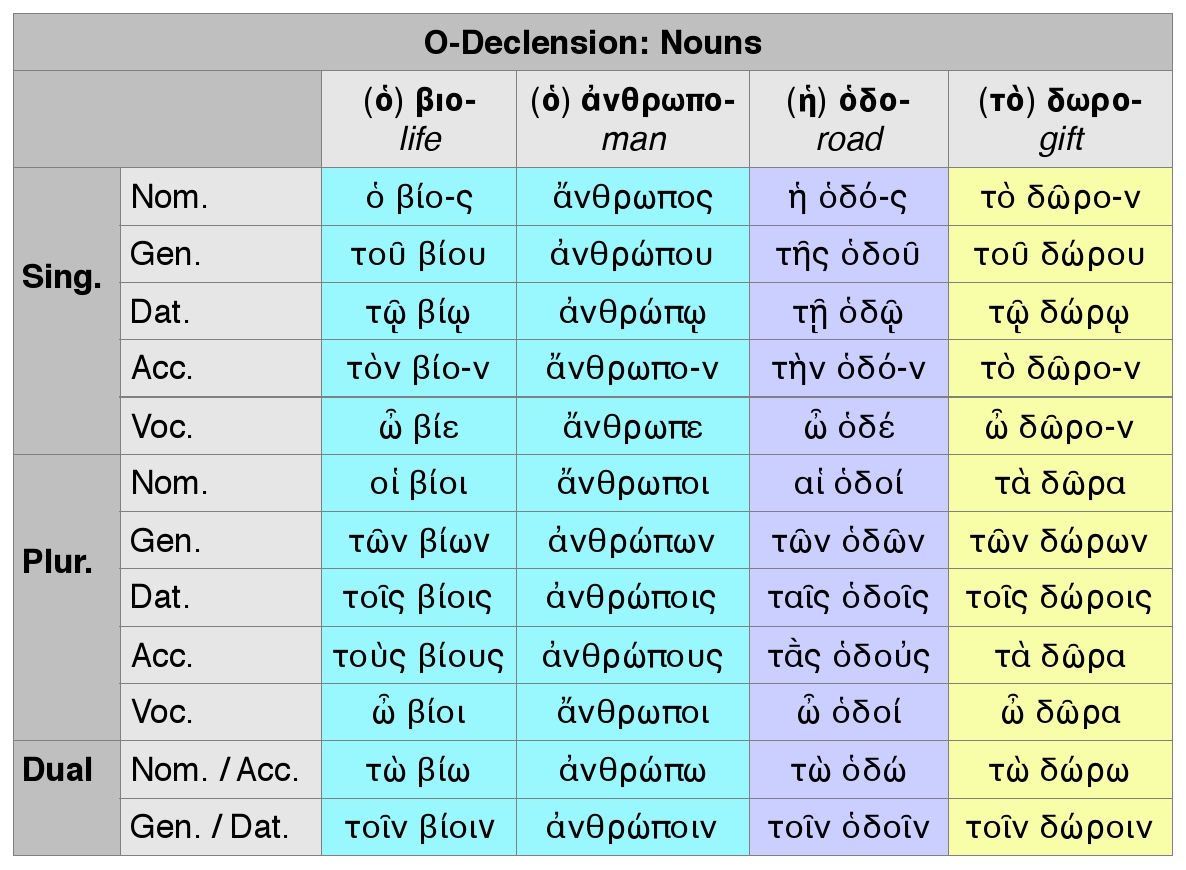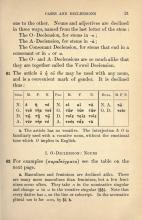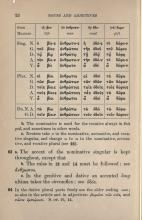62. a. Masculines and feminines are declined alike. There are many more masculines than feminines, but a few feminines occur often. They take -ς in the nominative singular and change -ο to -ε in the vocative singular (§ 25). Note that every dative has ι, on the line or subscript. In the accusative plural -ους is for -ο-νς, (§ 51.b).
b. The nominative is used for the vocative always in θεός (god) and sometimes in other words.
c. Neuters take -ν in the nominative, accusative, and vocative singular, and change -ο to -α in the nominative, accusative, and vocative plural (see § 25).
63. a. The accent of the nominative singular is kept throughout, except that:
b. The rules in §§ 12 and 14 must be followed (see ἄνθρωπος).
c. In the genitive and dative an accented long ultima takes the circumflex (see ὁδός).
64. In the dative plural poets freely use the older ending -οισι; so also in the article and in adjectives.
βωμοῖσι τοῖς σοῖς (Soph. Oedipus the King 16)
τοῖσιν ἐμπείροισι (Soph. Oedipus the King 44)



